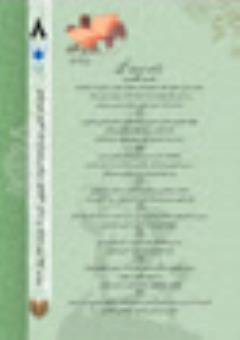Dialectics of Tradition and Modernity in Iranian Political Literature; A Comparative Study of Two Stories "Farsi Shekar ast" and "Rajole Siasi"
Subject Areas : Comparative Literature Studies
Somayyeh AliAkbarzadeh
1
![]() ,
Mandana Alimi
2
*
,
Ali fallah
3
,
Mandana Alimi
2
*
,
Ali fallah
3
1 - PhD student of Persian Language and Literature, Gorgan Branch, Islamic Azad University, Gorgan, Iran.
2 - گروه زبان وادبیات فارسی،واحد آزادشهر،دانشگاه آزاداسلامی ،آزادشهر،ایران
3 - Assistant Professor, Department of Persian Language and Literature, Faculty of Humanities, Gorgan Branch, Islamic Azad University, Gorgan, Iran.
Keywords: Jamalzadeh, Dialectic, Tradition, Modernity, Political literature.,
Abstract :
Mohammad Ali Jamalzadeh Esfahani is one of the famous writers who has always criticized Iran's political situation in his works with humor. In this article, the authors try to use the comparative method of Jamalzadeh's two works with the titles "Farsi Shekar ast" and "Rajale Siasi" by using political satire and answer this main question: "How and in what concepts have categorized the conflict between tradition and modernity by Jamalzadeh in the two stories of the Farsi Shekar ast and Rajole Siasi?" The hypothesis of the article emphasizes that these two works of Jamalzadeh are mainly based on humor and critical discourse, with the aim of correcting the chaotic political, social, and cultural situation of his society. The findings showed that Jamalzadeh's story "Farsi Shekar ast" has four macro institutional concepts of tyranny and corruption; the politicization of Iranian society shows the deep class divide and the dialectic of imported culture and traditional identity. But in the story of "Rajole Siasi", Jamalzadeh examines the society of Iran in certain times and conditions and refers to the fate of the people falling into the hands of those who have no expertise at all. In this regard, politics as wealth and prosperity, lack of meritocracy, political vulgarization, lack of understanding of political issues and lack of expertise, instability of the masses in the form of "political atmosphere, political encouragement and false heroization and political lobbying are the most important things that Jamalzadeh mentioned.
Rferences
A. Books
1. Afshar, I., & Dehbashi, A. (2020). Memoirs of Seyyed Mohammad Ali Jamalzadeh. Tehran: Elm. (In Persian)
2. Aaker, J. (2022). Humor, Seriously: Why Humor Is a Secret Weapon in Business and Life. Translated by Mohammad Qasaa, Tehran: Alborz. (In Persian)
3. Critchley, S. (2023). About humor. Translated by Sohail Sami, Tehran: Qoqnoos. (In Persian)
4. Eshaghian, J. (2014). Criticism of Mohammad Ali Jamalzadeh's works. Tehran: Negah. (In Persian)
5. Fazli, N., & Hashemi Moghaddam, A. (2014). Review of satirical Iranian folk texts. Tehran: Elm. (In Persian)
6. Jamalzadeh, M. A. (2009). Yeki Bood, Yeki Nabood. 5th Ed, Tehran: Sokhan. (In Persian)
7. Javadi, H. (2022). The history of humor in Persian literature. Tehran: Morvarid. (In Persian)
8. Khorramshahi, B. (2023). Comedy and Tragedy. 4th Ed, Tehran: Nahid. (In Persian)
9. MirAbedini, H. (2021). History of Iranian fiction literature. Tehran: Sokhan. (In Persian)
10. Morrill, J. (2022). Comic relief: a comprehensive philosophy of humor. Translated by Mahmoud Farjami, Tehran: Ney. (In Persian)
11. Nouri Shamsi, H. (2021). A new method in analyzing and comparing realist stories (with an approach to the stories "Yeki Bood, Yeki Nabood" and "Pir Mard va Darya"). Tehran: Andishmandan. (In Persian)
12. Pollard, A. (2023). Satire. Translated by Saeid Saeidpour, Tehran: Markaz. (In Persian)
13. Sadrinia, B. (2022). Constitutional Literature. Tehran: Sokhan. (In Persian)
14. Shafiei, M. (2016). Collection of humor in Iranian literature. Tehran: Mohajer. (In Persian)
15. Soleimani, M. (2017). Satire in simple language. Tehran: Soroosh. (In Persian)
16. Talebi, F. (2022). Commentary on the works of Mohammad Ali Jamalzadeh and Jalal Al-Ahmad. Tehran: Negah. (In Persian)
B. Articles
1. Akbarzadeh, N., & Karimi Motahhar, J. (2021). Criticism of the literary school of critical realism in Iran (based on the stories "Farsi Shekar ast" and "Gilehmard"). Critical Research Journal of Humanities Texts and Programs, 21(10), 27-51. (In Persian)
2. Marefat, Sh., & Abbasi, H. (2014). A Comparative Analysis of the Title of Jamalzadeh's Once Upon a Time and Teymour's Alwasbat Aloula. Lisān-i Mubīn, 5(15), 120-101. (In Persian)
3. Musabadi, R., & Nowrooz, M. (2018). Comparative study of the effects of British and Russian colonialism in the constitutional era in the poems of Nasim Shomal and Malek al-Sha'ari-Bahar. Jostarnameh Journal of comparative Literature Studies, 2(5), 48-80. (In Persian)
4. Mousazadeh, M., Mohammadzadeh, D., & Sadeginejad, D. (2020). A Comparative study of satirical tricks in Attar's Masnavi. Jostarnameh Journal of comparative Literature Studies, 4(13), 35-54. (In Persian)
5. Najafzadeh, F., & Dehshiri, M. (2020). The Place of Satire in Political Development of Iran; Content Analysis of the Cover of Golagha Journal (1997-2005). Scientific journal Political Sociology of the Islamic Revolution, 1(3), 183-220. (In Persian)
6. Pashai, M., & Ramazani, A. (2017). Analysis of the Components of Realism in the Fiction of Jamalzadeh and Al-e Ahmad. Journal of Persian Language & Literature (Former Journal of the Faculty of Literature, University of Tabriz), 70(235), 17-38. (In Persian)

